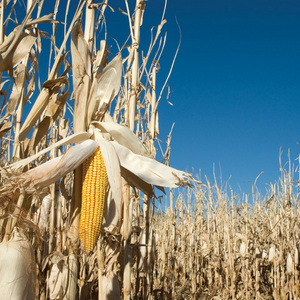Thailand bans import of corn grown on burned lands

Thailand will ban imports of feed corn grown using slash-and-burn methods from January 1, 2026, to reduce cross-border air pollution. Importers must certify burn-free sources during a transitional period. The move may open opportunities for U.S. corn exports, while current suppliers like Myanmar, Laos, and Cambodia face stricter scrutiny.
Thailand has announced a ban on importing animal-feed corn produced using the burning of agricultural lands, a move that could help reduce cross-border air pollution and pave the way for purchases from the United States. On September 22, 2025, Duangarthit Nidhi-u-tai, Deputy Director-General of the Department of Foreign Trade under the Ministry of Commerce, told journalists that new regulations will require importers of feed corn to provide proof that the corn comes from burn-free sources starting January 1, 2026. This decision still awaits cabinet approval in the coming weeks.
This step is linked to frequent smog issues and declining air quality in Bangkok and other parts of Thailand. While the rule is framed as an environmental measure to combat air pollution, it is also seen as an opportunity to expand imports from the U.S.—the world’s largest corn producer—under commitments to broaden market access in exchange for a tariff deal. During a transitional period beginning January 1, 2026, imports may be certified by importers, agencies of exporting countries, or international organizations. This period will end once the Clean Air Act takes effect, introducing stricter rules, with violators facing a potential one-year ban.
Thailand typically imports corn from neighboring Myanmar, Laos, and Cambodia, where slash-and-burn farming is widely practiced. Fires in these countries produce thick smoke that winds carry into northern and northeastern Thailand, worsening the seasonal pollution crisis. In 2024, these three countries supplied Thailand with 2 million tons of corn, while the country’s annual demand exceeds 8 million tons for feed production, with domestic output reaching only about 5 million tons.
Currently, the U.S. cannot export corn to Thailand as the agricultural authorities of both countries have yet to sign a separate agreement. However, during negotiations that led to Washington imposing a 19% tariff, Thailand offered to remove tariffs on 90% of U.S. goods, including corn, soybean meal, and other agricultural products. Besides the U.S., other WTO members such as Mexico, Argentina, India, and Pakistan, which have trade agreements with Thailand, could also benefit from the new regulation, Duangarthit added.
To Read more about Maize News continue reading Agriinsite.com
Source : Ukr Agro Consult















